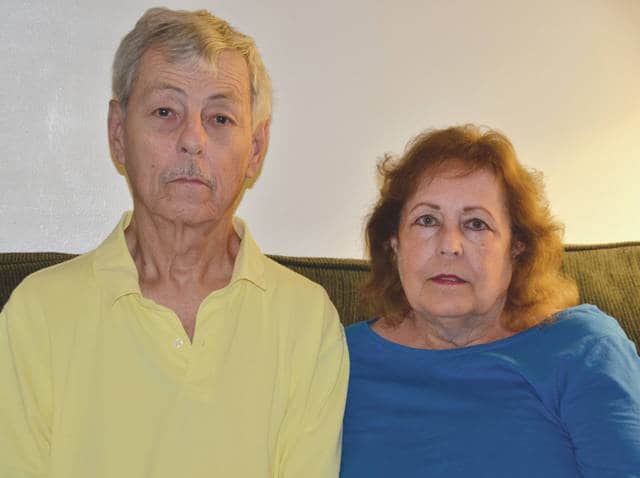
BEAVERCREEK — Mike Tritschler has only two options to get a much needed kidney donor that will save his life. The first option is to wait on a waiting list for deceased-donor, which on average is a five-year wait. The second option is to find a living-donor.
The latter is the best option for the Beavercreek American Legion member’s situation and what doctor’s say will most likely be his only option at this point. His family and friends have been eliminated as possible donors which has turned his search to asking his neighbors and the community for help.
“I feel really funny asking for help from strangers, but this is my life and I have to do what I need to do,” Tritschler said. “Right now, I’m getting ready to start dialysis until something becomes available.”
Tritschler knew there was an issue with his kidney when he started having to get up to go to the bathroom three to four times a night. He became more tired than normal. It became difficult for him to take his walks like normal or do yard work. He started sleeping more and visiting friend and family less.
When he went to the doctor and the results were not expected. “I’ve been diagnosed as a stage 4,” he said.
In 1967, Tritschler joined the Army and traveled to Germany as a cook, later worked at the Wright-Patterson Air Force Base, where he eventually retired in 1999. Now, he helps search for missing children in the area. He met his wife in a Dayton Dance Club. She loved to dance and he not so much but they fell in love. During the early years of marriage, they had two children and lived the simple life. Eventually, the children grew, moved out and they bought his family home where he and his wife took care of his mother and mother-in-law, in Riverside.
“He has always been a great provider, fantastic father and husband,” Tritschler’s wife Sharon said. “We’ve been married for 45 happy years.”
“My blood type is A+,” Trischler said. “My wife and children are not able to donate a kidney because of health issues. I had a friend that was considering but he recently had a stroke, which disqualified him. I don’t have anyone else. I just want to get back to my life.”
What happens next when opting to be a living-donor? According to AllinaHealth.org, a living donor can expect the following testing to be completed to determine compatibility:
1. Blood test to determine blood type. (Four blood types: A, O, B, AB) If the blood types are compatible, the donor moves to the next round of testing;
2. Additional blood tests to determine genetic typing and crossmatching;
3. Physical examine, along with 24-hour urine collection;
4. Electrocardiogram and chest x-ray; and
5. CT scan of the abdomen to check blood vessels and structure of kidneys.
If the living-donor is a match, he/she will meet with the surgeon, kidney transplant team and everything will fall into place. But, who pays for the testing, procedure and hospital bills? The recipient’s health insurance pays everything.
A living donor cannot have a history or present drug or alcohol abuse issue.
According to the University of Cincinnati Chief of Transplant Surgery, E. Steve Woodle, M.D. more than 64 percent of donors came from living-donors. Also, when a kidney recipient accepts a kidney from a living donor, their life-expectancy increases 20 years; a deceased-donor only 11 years.
“It would be great to be able to go on a family vacation or just go somewhere outside of a 20 minute radius of our home,” Sharon said. “It’d be great to see him with the energy he once had. It’s been such a long time since any of that’s happened.”
Tritschler is still in the process of testing in order to be placed on the kidney recipient list and starting dialysis three times a week. He plans on having the surgery at the University of Cincinnati. UC is part of an exchange system where donors that are tested and are not suitable for the one intended can be matched up with others on the waiting list. Once Tritschler is put on the list, he will also qualify for these living-donors as well and vise versa.
“If I were to get a living-donor, I would be beyond grateful,” Tritschler said. “So would my family.”
For more information or to see if you are a donor candidate contact the Living Donor Coordinator in the kidney transplant department, Tina Stanley, RN at 513-584-8313 or email at [email protected].
.neFileBlock {
margin-bottom: 20px;
}
.neFileBlock p {
margin: 0px 0px 0px 0px;
}
.neFileBlock .neFile {
border-bottom: 1px dotted #aaa;
padding-bottom: 5px;
padding-top: 10px;
}
.neFileBlock .neCaption {
font-size: 85%;
}




